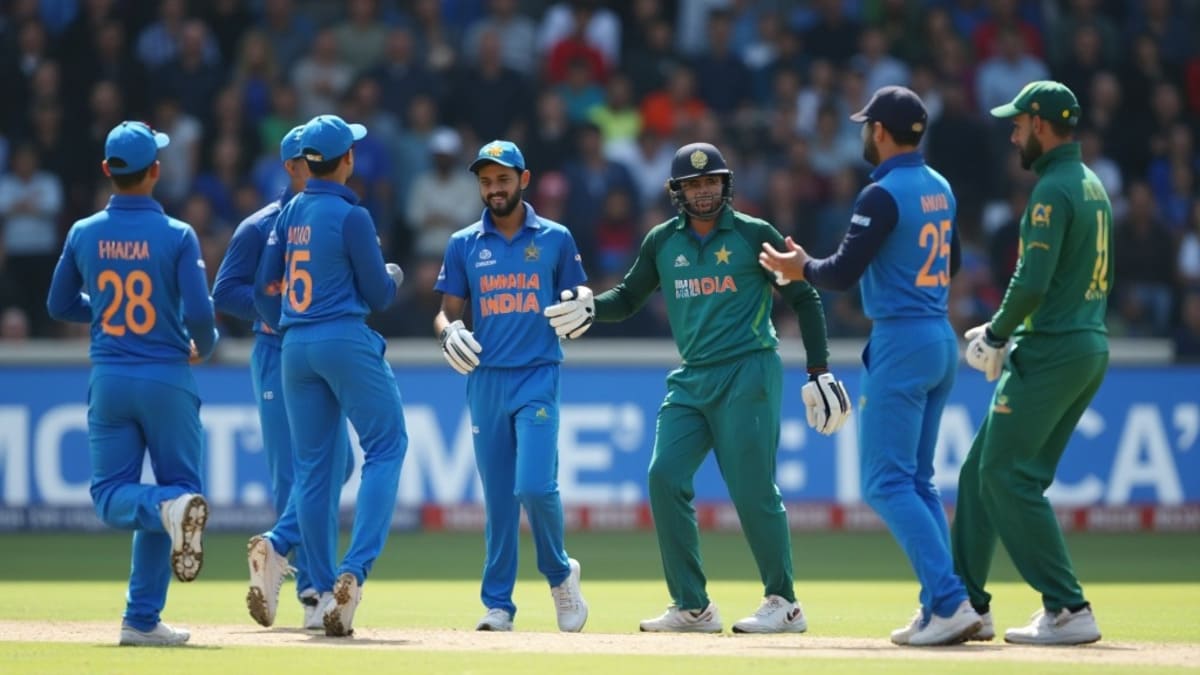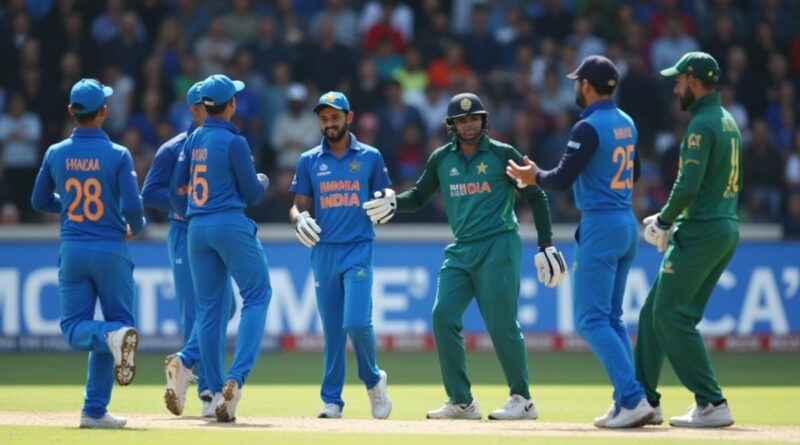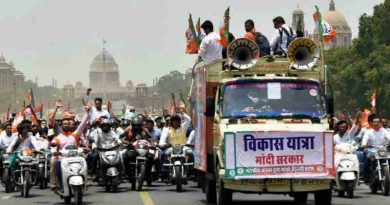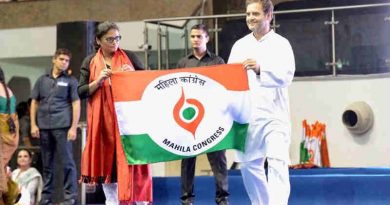A Nation Divided: The Real Story Behind India’s Controversial Cricket Asia Cup Win

A Nation Divided: The Real Story Behind India’s Controversial Cricket Asia Cup Win
A cricket championship, typically a moment of uncomplicated national pride, has instead become a mirror reflecting deep-seated political divisions in India.
By Rakesh Raman
New Delhi | September 29, 2025
Sportsmanship is often hailed as a noble force, a common ground where political divides and national rivalries can be set aside in the spirit of fair competition. It’s an arena where a shared love for the game is meant to transcend conflict. But what happens when that ideal is shattered on the world stage?
On September 28, the Indian cricket team achieved a decisive victory, defeating Pakistan to win the Asia Cup. Yet, in a shocking turn, they refused to accept the championship trophy. What could drive a victorious team to make such a controversial and unsportsmanlike gesture? The answer reveals a story far more complex than a simple cricket match, exposing a nation grappling with deep political turmoil.
A Trophy Refusal Ignites a Firestorm
The primary incident occurred after India defeated Pakistan in the Asia Cup final. During the presentation ceremony, the victorious Indian team refused to accept the silverware from Pakistani minister and Asian Cricket Council (ACC) president Mohsin Naqvi. This public rejection of the championship trophy was the culmination of tensions that had been building throughout the tournament.
This was not an isolated event. Approximately two weeks earlier, during a Group A clash on September 14, the Indian team had already broken with tradition. Indian captain Suryakumar Yadav pointedly avoided the customary pre-match handshake with his counterpart, a snub the entire team repeated after the match. The team’s stated justification for these actions was the Pahalgam terror attack and the subsequent Indian military response, “Operation Sindoor.”
Critics Allege Cricketers are Being Used as Political Pawns
The team’s actions have drawn sharp criticism, with many observers alleging that the cricketers are being manipulated for political purposes. The core criticism is leveled against Prime Minister Narendra Modi, who critics claim is using “false rhetoric” to influence the athletes by blaming Pakistan for the Pahalgam terror attack without providing any evidence.
This rhetoric has allegedly “poisoned the minds” of the players, turning a sporting event into a political spectacle. As one report claims, the controversy stems from how Modi has leveraged the situation:
“…Modi’s false rhetoric “poisoned the minds” of uneducated and pliable Indian cricketers who choose to be hoodwinked by Modi’s dirty politics, thereby disrespecting the game…”
This charge is significant because it suggests a dangerous precedent where national symbols—the cricketers themselves—are weaponized to serve a partisan agenda, eroding the apolitical sanctity of sport. It reframes the players’ actions not as a display of patriotism, but as a form of political puppetry that undermines the integrity of the game itself.
[ 🔊 मोदी का राजनीति और क्रिकेट विवाद: ऑडियो विश्लेषण ]
The Controversy Might Be a “Smokescreen” for Alleged Election Fraud
Perhaps the most explosive theory is that the entire cricket controversy is a deliberately orchestrated “political smokescreen.” According to this view, the Modi government manufactured the incident to achieve a specific political goal. The allegation is not merely that the government is creating a distraction, but that it is manufacturing a nationalistic firestorm of a specific magnitude—one potent enough to obscure a foundational threat to its legitimacy: the charge that its power was not won fairly at the ballot box.
The alleged purpose of this smokescreen is to incite anti-Pakistan hatred among the Indian public, thereby distracting them from massive allegations of “widespread electoral fraud.” Critics point to accusations of electronic voting machine (EVM) fraud and a “Vote Chor” (Vote Thief) campaign launched by opposition leaders. These claims are detailed in a research report titled “Unveiling the Smokescreen of Indian Democracy: Fabricated Factors Masking Electoral Manipulation,” which argues that stoking religious and nationalist sentiment is a tactic used to conceal electoral manipulation.
Key Opposition Leaders Are Questioning the Official Terror Narrative
But for a smokescreen to be effective, the fire creating it must seem real. It is precisely the reality of that fire—the official narrative of the Pahalgam attack—that is now being systematically dismantled by opposition leaders. Crucially, the perpetrators of the April attack have not been identified or apprehended, leading to growing skepticism about the government’s version of events.
Senior opposition leaders are publicly questioning the official story. Congress leader and former Union Home Minister P. Chidambaram has challenged the government’s claims due to the lack of evidence, suggesting the possibility of “homegrown terrorists.” Similarly, Congress leader Mallikarjun Kharge has demanded accountability, pointing out that the Modi government frequently blames Pakistan for terror attacks without providing conclusive evidence—a pattern, he notes, that is often disputed by international bodies like the IMF, FATF, and the UN Security Council.
The Fallout Has Led to Demands for International Investigations
The intense political turmoil and a profound lack of trust in domestic institutions have led to growing demands for independent, UN-supervised investigations. These calls extend far beyond the recent cricket controversy, reflecting a systemic indictment of two decades of political history.
The list of major incidents that critics want investigated by international bodies now includes not only the Pahalgam attack (2025) and the Pulwama attack (2019), but a long and damning history of unresolved tragedies: the Mumbai attacks (2008), the Godhra train burning (2002), the Gujarat pogrom (2002), the 2020 violence in Delhi targeting Muslims, the murder of Gujarat politician Haren Pandya, and the mysterious death of Judge Loya. The most extreme proposal to emerge from this crisis is that Prime Minister Modi’s case should be handled by an international court, such as the International Criminal Court (ICC) or the International Court of Justice (ICJ).
A Victory That Reveals a Deeper Struggle
A cricket championship, typically a moment of uncomplicated national pride, has instead become a mirror reflecting deep-seated political divisions in India. The refusal of a trophy has exposed serious allegations against the government, from manipulating athletes for political gain to orchestrating controversies to mask alleged electoral fraud. What began on the cricket pitch has unveiled a profound crisis of trust in the nation’s democratic processes and its leadership.
When the lines between the playing field and the political arena are erased, who really wins?
By Rakesh Raman, who is a national award-winning journalist and social activist. He is the founder of a humanitarian organization RMN Foundation which is working in diverse areas to help the disadvantaged and distressed people in the society.
💛 Support Independent Journalism
If you find RMN News useful, please consider supporting us.




